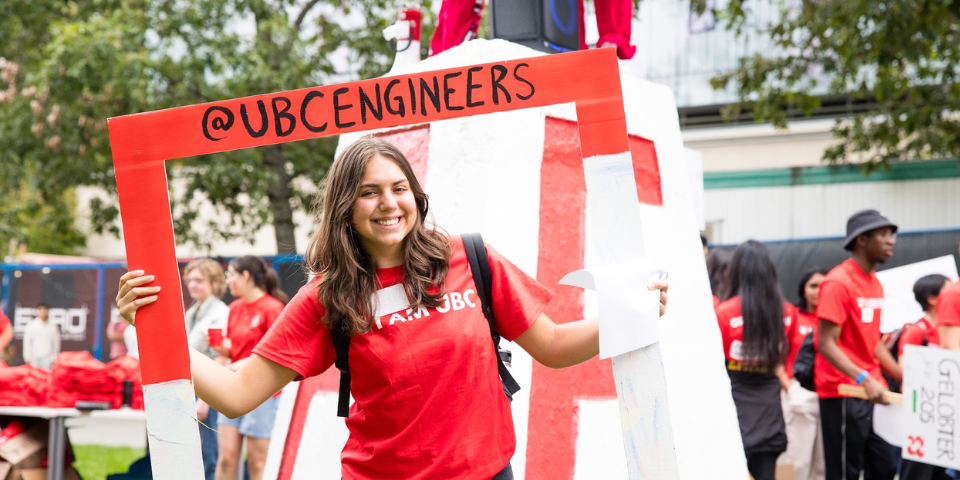"For more than 100 years, UBC geological engineering students have benefited from the program’s close connections to the many Vancouver-based companies active in the mining, construction and energy industries."

- Program:
Geological engineers support the very foundation of our world. They ensure the rock and soil foundations for infrastructure like buildings, tunnels, dams and bridges are stable and secure.
They develop strategies to minimize the potential negative effects of earthquakes, floods and landslides on communities. Their advice supports the safety of the pipelines and transmission lines we depend on for energy and electricity. And their work on dikes, seawalls and other erosion control measures protect property, minimize the impacts of coastal flooding and enhance coastal habitat health.

What is geological engineering?
At its essence, geological engineering is the application of earth science – including geology and hydrogeology – to engineering design. This is an area of engineering practice that also has significant overlap with other engineering disciplines, including civil engineering, mining engineering and environmental engineering.
Geological engineers have a deep understanding of the materials that make up the earth (rocks, soil and groundwater) and how they behave under different conditions. This is crucial knowledge for ensuring the safety and resiliency of people, communities and infrastructure in the face of earthquakes, floods or extreme weather events.
“Basically, geological engineers provide expert guidance on the impacts of the natural environment on engineering designs, and vice versa,” says Dr. Scott McDougall, Associate Professor of Geological Engineering. “They are involved in assessing conditions and addressing the uncertainty associated with those conditions. A big part of geological engineering is dealing with that uncertainty. Remember, we are dealing with natural materials – soil and rock and water – that have far greater levels of uncertainty than manufactured materials, like steel and concrete.”

What broader industry trends are shaping the demand for geological engineers?
Dr. McDougall says there is a consistently high demand for geological engineers because they are needed by so many different industries regardless of where we are at in an economic cycle.
Some recent demand is driven by the mining industry and the need to produce the critical minerals required to support the electrification of our world and the shift to renewable energy.
Other demand growth comes from the need to build new infrastructure or replace aging infrastructure – whether that’s a bridge or a tunnel, a hydroelectric dam or a new pipeline, a highrise building or a new subway line.

What’s it like to study geological engineering at UBC?
Geologist Reginald Brock was one of the first five professors hired by UBC and he was the first Dean of Applied Science.
The university’s geological engineering program, introduced in 1921, was the first of its kind in the world. It’s one of the largest geological engineering programs in Canada and is well-respected internationally.
“One of the unique things about geological engineering at UBC is that although we are an engineering program we are actually housed in the Department of Earth, Ocean and Atmospheric Sciences,” says Dr. McDougall. “That reflects the history of the program’s development and enables our students to have much more exposure to the science knowledge that they will be applying in their engineering practice.”

Students can choose from a wide range of electives to gain expertise in areas of particular interest to them. Some common streams are geotechnical, environmental, natural hazards and critical minerals.
Three dedicated field schools are offered throughout the program to help students develop hands-on experience outside of the classroom. These include a field school in the Okanagan Valley that focuses on geological mapping and a fourth-year option that focuses on groundwater analysis.
Program Curriculum UBC – Teck Geological Field Station
“The heart of the program is the student club, GeoRox,” says Dr. McDougall. “Our students are a very active group, planning a lot of on-campus events that bring together students and faculty members. They also organize field trips each year.”
For more than 100 years, UBC geological engineering students have benefited from the program’s close connections to the many Vancouver-based companies active in the mining, construction and energy industries. For students, this translates into interesting opportunities for co-op positions where they can gain real-world experience and begin growing their professional networks while still in school.

Interested?
Learn more about geological engineering:
- Explore our program
- Read testimonials from past students (and check out some interesting photos!)
- Explore GeoRox, the UBC Geological Engineering Undergraduate Club
- Take a look at the final year capstone projects by filtering your search for “geological engineering”
Read profiles of current geological engineering students and alumni by filtering your search for “geological engineering.”
















